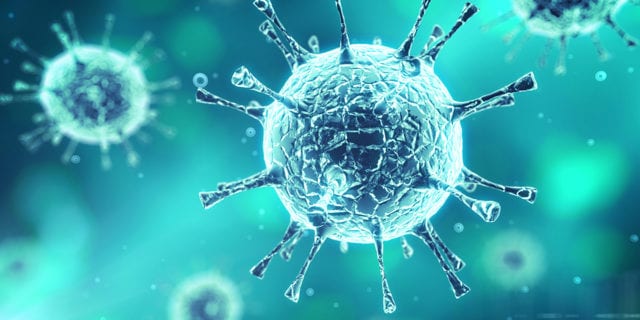John Theurer Cancer Center to Test Efficacy of Certain Forms of Treatments for COVID-19 with Potential of Altering Course of Global Pandemic
Groundbreaking study helps medical community understand the effectiveness of tocilizumab in treating critically ill, as well as the impact of certain risks associated with treatment
The outcomes division of John Theurer Cancer Center (JTCC) at Hackensack University Medical Center, under the leadership of Stuart Goldberg, M.D., and Andrew Ip, M.D., M.S., is providing timely insight to the global medical community as promising therapies and interventions for COVID-19 are tested. The HMH Universal Observational Database for COVID-19 compiles outcomes from more than 3,000 patients admitted for urgent care in 13 HMH hospitals in New Jersey.

The database enhances the understanding of COVID-19 and helps rapidly identify effective therapies, including the best sequence of care. The database also was utilized to create an app that measures risk and survival for COVID-19.
Under the direction of Noa Biran, M.D., oncology specialist, with Andrew Ip, M.D., M.S. and Stuart Goldberg, M.D., Hackensack Meridian Health also completed a retrospective observational cohort comparing outcomes in patients who received tocilizumab with those who did not. Patients all had laboratory-confirmed COVID-19 and needed support in the ICU.
The study, published in The Lancet Rheumatology, looked at the association between tocilizumab exposure and hospital-related mortality among patients and offered important insight into the use of tocilizumab in the most critically ill population of mechanically ventilated patients admitted to the intensive care unit.
Results of this study suggest that targeting excessive host inflammation with a IL-6 inhibitor is a therapeutic strategy in severe COVID-19 and has led to a confirmatory international prospective randomized controlled clinical trial.
The team at Hackensack Meridian Health also found a lack of efficacy of hydroxychloroquine for hospitalized COVID-19 patients and was part of the investigative team – the first in the world – to observe that acalabrutinib, a lymphoma drug, might offer a potential therapeutic approach for severe COVID-19 infection.
Patients with severe COVID-19 have a hyperinflammatory immune response suggestive of macrophage activation, a severe complication of rheumatic disease characterized by an uncontrolled proliferation of T lymphocytes and macrophages (cells involved in the detection and destruction of bacteria and other harmful organisms that can produce antigens to T cells).
We administered acalabrutinib, a selective BTK inhibitor, off-label to 19 patients (11 on supplemental oxygen; eight on mechanical ventilation). Acalabrutinib improved oxygenation and reduced inflammation in a majority of patients, often within 1-3 days, with no discernable toxicity. These results suggest that targeting excessive host inflammation with a BTK inhibitor is a therapeutic strategy in severe COVID-19. Our results have led to a confirmatory international trial.
A member of the Georgetown Lombardi Comprehensive Cancer Center Consortium, John Theurer Cancer Center also became the first center in the world to open the new CALAVI trial, a multicenter national prospective controlled clinical trial to further evaluate safety and efficacy in particular preventing respiratory failure in these COVID-19 patients.
